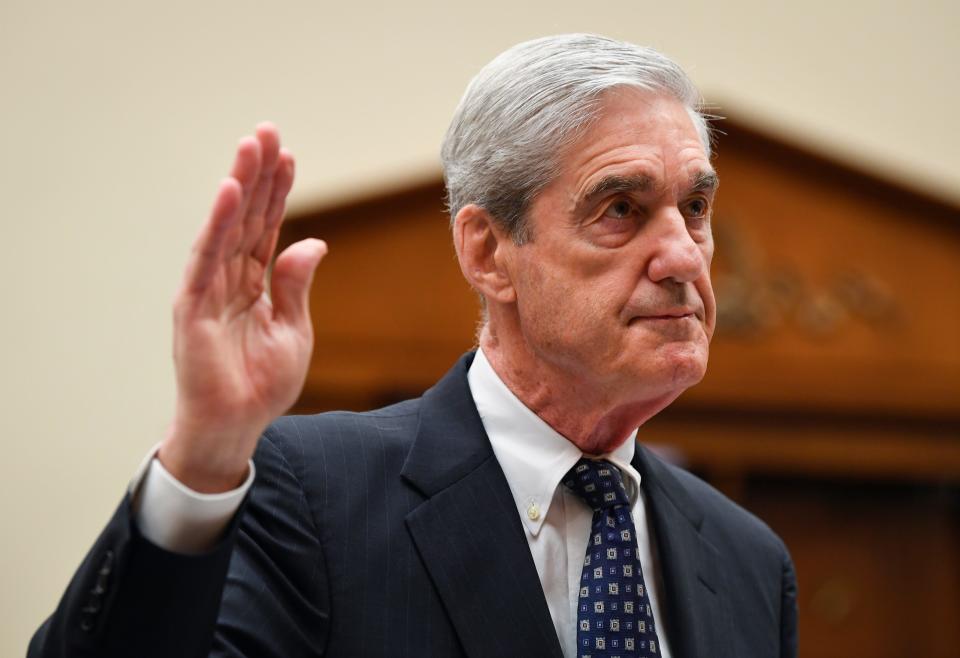Alan M. Dershowitz: Mueller testimony was confusing and contradictory
Robert Mueller began his testimony by affirming the rule that prosecutors should not comment about decisions not to prosecute any subject of an investigation. The former special counsel said he would follow the direction of the Justice Department not to go beyond the words of the report.
Yet, Mueller repeatedly violated this rule by suggesting that the reason he did not indict President Donald Trump was because of a Justice Department opinion stating that a sitting president can’t be indicted. No such clear-cut statement appears in the Mueller report itself, nor in a letter jointly written by the Office of the Attorney General and the Office of Special Counsel.
Here is what the letter says: “The attorney general has previously stated that the special counsel repeatedly affirmed that he was not saying that, but for the OLC (Office of Legal Counsel) opinion, he would have found the president obstructed justice.”
This corroborated an even clearer statement made by Attorney General William Barr: “Our determination was made without regard to, and is not based on, the constitutional considerations that surround the indictment and criminal prosecution of a sitting president.”
Now contrast these statements with the exchange between Congressman Ted Lieu and Mueller.
Lieu: “The reason again that you did not indict Donald Trump is because of an OLC opinion stating that you cannot indict a sitting president, is that correct?”
Mueller: “That is correct.”
OUR VIEW: Mueller testimony fails to galvanize nation to impeach Trump

By so answering that question, and similar questions by other Democrats, Mueller not only went beyond the report but also created a direct conflict between himself and the attorney general. Although Mueller tried to backpedal on his previously certain answer, by reading a canned clarification, he only added to the confusion about his actual state of mind with regard to the role played by the OLC policy.
Mueller’s testimony also created a conflict between the criteria used in Part 1 of his report (conspiracy with Russia) and Part 2 (obstruction of justice). A Republican congressman asked him why he failed to come to a conclusion about obstruction of justice while coming to a conclusion about conspiracy. His answer was incoherent.
The overall conclusion many people will draw from Mueller’s confusing testimony is that the report should no longer be called the Mueller report. It seems quite clear that Mueller himself did not play a major role in compiling it or writing its conclusions. He did not seem familiar with its content, nor was he able to answer proper questions.
Henceforth, this report should be called the “Staff Report.” If that observation is correct, then the one-sided anti-Trump backgrounds and predispositions of so many of the lawyers and staff members who were the real authors of the report assume even greater significance.
Alan M. Dershowitz is the Felix Frankfurter Professor of Law Emeritus at Harvard Law School and author of “The Case Against the Democratic House Impeaching Trump.”
If you can't see this reader poll, please refresh your page.
This article originally appeared on USA TODAY: Mueller testimony was confusing and contradictory: Alan M. Dershowitz

